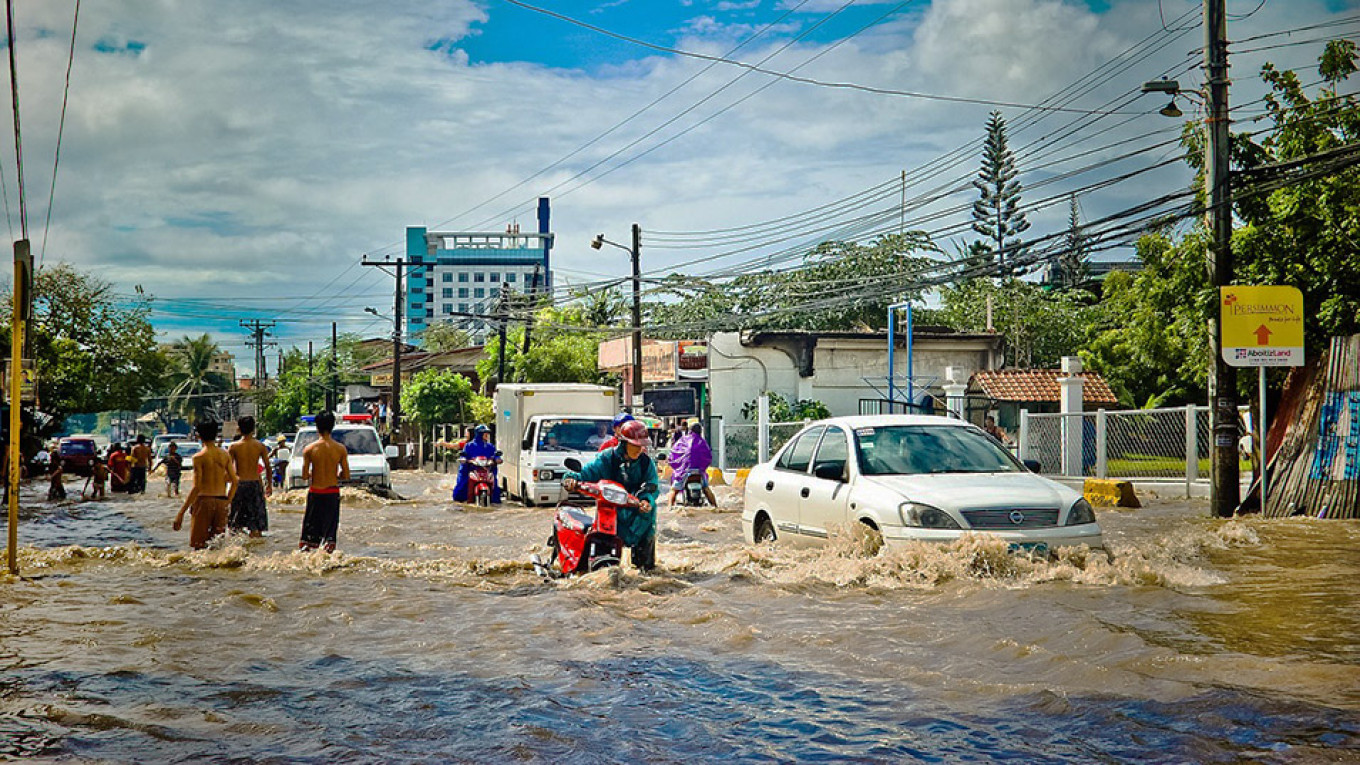
Russia’s economy will lose hundreds of billions of dollars in potential growth as a result of climate change, a new report published Wednesday showed.
In its new climate resilience index, the Economist Intelligence Unit (EIU) calculated that Russia’s GDP will be 3.3% lower in 2050 than it would be without the hit to growth from environmental damage.
The report slammed Russia’s leaders for being “slow to engage with the challenges presented by climate change,” and highlighted “widespread climate change scepticism among much of the Russian business community and policymakers.”
“This scepticism is bolstered by the conviction that Russia may, in fact, benefit from climate change in some regions: for instance, the Arctic Ocean is expected to be largely ice-free and navigable in the summer months by 2025-30, which could allow for the Northern Sea Route to emerge as a major transit corridor between China and Europe,” the report said.
Russia only ratified the 2015 Paris climate change accord this fall, becoming one of the final countries to do so. A plan to introduce a quota on carbon emissions was killed off after lobbying from Russia’s most powerful oligarchs and business owners.
President Vladimir Putin said Wednesday an emissions-free world would harm civilization.
“Climate change issues have played only a peripheral role in Russia’s policy debate, and Russia has not been a prominent player in international negotiations,” the EIU report said of the world’s fourth-largest polluter.
Russia ranks 39th of the 82 countries studied in terms of estimated losses due to climate change. However, it far surpasses the 1.7% average estimated loss in western Europe and the 3% predicted for eastern Europe.
In line with the government’s lackluster approach to climate regulation, Russia scored low in components related to how it is trying to mitigate the effects of climate change and reduce emissions, and its efforts to adapt to climate change, such as by installing flood defences and protecting key energy infrastructure.
The report’s authors draw an unfavourable comparison between Russia and Argentina — a country with a similar level of economic development, which will be able to limit its economic loss from climate change to 2% as a result of the country’s higher level of “institutional preparedness and effectiveness”.
Russia’s flagship economic development program — President Vladimir Putin’s $400 billion National Projects — “makes no reference to climate change or mitigation strategies,” the EIU adds.
“This suggests that ensuring that the ambitious government economic growth targets are achieved in a sustainable manner will not be a policy priority.”
